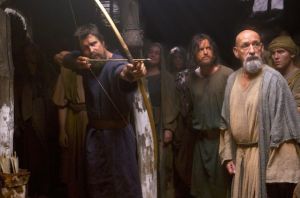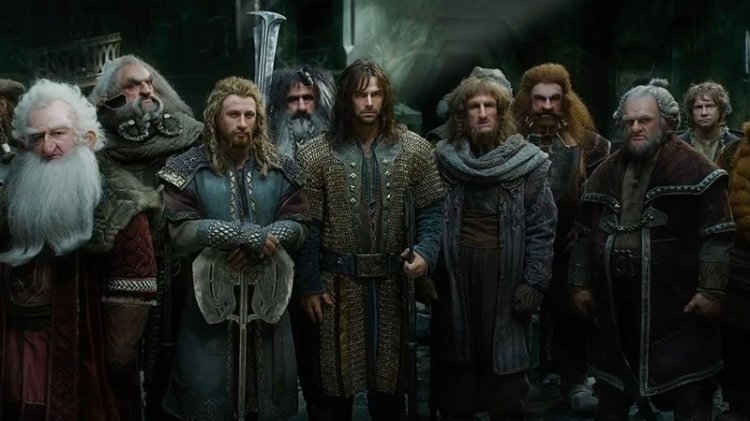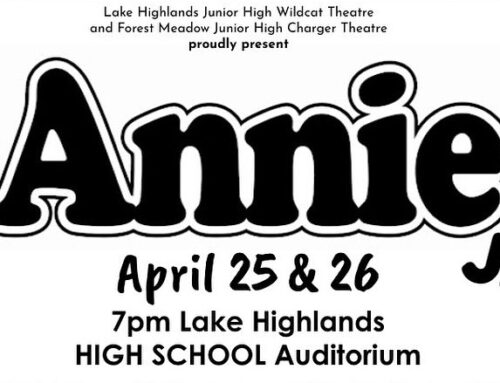The good news is that Peter Jackson’s final installment of his unnecessarily long adaptation of The Hobbit shows improvement over its predecessors. The downside is that it’s an a degree of improvement akin to the Star Wars prequels: better, but still a slog to get through with only a few rewarding moments. At best, it makes one appreciate the elegance of the Lord of the Rings films even more.
The Battle of the Five Armies begins immediately after the closing credits of The Desolation of Smaug, picking up the pointless cliffhanger ending of that film and dispatching the rampaging dragon in less than ten minutes of screen time. The poor citizens are Laketown have become refugees following Smaug’s rampage, and seek shelter at the Lonely Mountain, as well as their share of the dragon’s treasure horde, as promised by dwarf-who-would-be-king Thorin (Richard Armitage). Thranduil (Lee Pace) and his contingent of elves also arrive, seeking the jewels that belong to his people.
Unfortunately for them, Thorin has developed a bad case of gold fever, grown obsessive over finding the Arkenstone so that he fully reclaim and restore the dwarf kingdom, and is surprisingly unwilling to make good on his promises. These leads to much saber rattling as the three factions edge closer and closer to a war that the circling forces of darkness would be happy to exploit.
Meanwhile, back at the ranch, Galadriel (Cate Blanchett), Elrond (Hugo Weaving), and Saruman (Christopher Lee) rescue Gandalf (Ian McKellen) and learn of the impending return of Sauron in a gratuitous bit of fan service that comes across as anticlimactic closure to a tedious thread needlessly spread across three movies.
All of this busyness leads to leads to the movie’s titular battle, a massive piece of busyness that takes up 45 minutes of a hefty 144-minute running time. On the plus side, now that the finish line is in sight, The Five Armies is free of the meandering storytelling and needless padding that bogged down the first two installments. It’s fast-paced and more focused, though the momentum sometimes wanes.
Still, the damage is done and the movie can’t entirely shake off the fatal flaws that have dogged the trilogy: The title character, the Everyman (Every-hobbit? Every-Middle-Earthling? Whatever.) proxy for the audience and moral compass of the story, is pushed into the background for much of it — sad, considering the strength of Martin Freeman’s performance. The tepid Tauriel-Legolas-Fili love triangle, not present in the novel, never rises above melodrama. The material sutured on to expand the project into a trilogy feels blatantly tacked on and inconsequential. At this point it’s fair to say that Jackson’s weakness for narrative bloat has now officially defeated him.
The original novel was a relatively simple and straightforward adventure tale; Jackson’s interpretation has been anything but that. Now complete, it stands as tone-deaf product that suffocates the material with a morass of hollow spectacle. It’s sadly ironic to see author J.R.R. Tolkien’s anti-greed, anti-war tale turned into this.
Exodus
Visually sumptuous but otherwise hollow, Ridley Scott’s take on the Biblical tale of Moses could use a little more wrath of God to perk it up a bit. It’s not a bad movie per se, it’s just that it fails to pull us in the way it should. You don’t watch Exodus: Gods and Kings, you look at it for two-and-a-half hours.
It’s the polar opposite of Darren Aronofsky’s revisionist and borderline campy Noah; it strives for a safe middle path between the secular and the religious that is unlikely to interest or satisfy either camp.
Scott’s take is stripped-down Cecil B. DeMille: Moses (Christian Bale) is a prince of Egypt and successful general in its army, the foster brother of heir-to-the-throne Ramses II (Joel Edgerton, rocking a nice tan and lots of guyliner). There’s friction between the two, as King Seti I (a nearly unrecognizable John Turturro) recognizes that Moses is the more competent and even-tempered of the two.
After Seti dies, the truth about Moses’ Hebrew heritage comes to light, and his cast into exile. Cue his Dances with Wolves moment as he takes with a tribe of goat herders. His idyllic lifestyle grinds to a halt when he’s concussed during a mudslide, which seemingly leads to him having conversations with God’s herald, the angel Malak (played as a petulant child by 11-year-old Isaac Andrews), who tasks him with cowboying up and freeing the Hebrews from 400 years of cruel servitude and lead them home.
 This involves a mix of Old Testament morality and smash-mouth violence, as Moses leads a guerilla war against the Egyptians. When that fails to convince Ramses to let Moses’ people go, Yahweh ups the ante with a plethora of plagues and infestations, manifested as a series of ecological disasters on a Biblical scale: A mass alligator attack turn the Nile red with blood, which leads to a massive fish kill, which drives millions of frogs into Memphis, which leads to a swarm of flies, and so on. Ramses remains stubbornly resolute until something (Scott and his cadre of screenwriters provide no pat explanation here) kills every first-born Egyptian child. The rest is Sunday School curriculum.
This involves a mix of Old Testament morality and smash-mouth violence, as Moses leads a guerilla war against the Egyptians. When that fails to convince Ramses to let Moses’ people go, Yahweh ups the ante with a plethora of plagues and infestations, manifested as a series of ecological disasters on a Biblical scale: A mass alligator attack turn the Nile red with blood, which leads to a massive fish kill, which drives millions of frogs into Memphis, which leads to a swarm of flies, and so on. Ramses remains stubbornly resolute until something (Scott and his cadre of screenwriters provide no pat explanation here) kills every first-born Egyptian child. The rest is Sunday School curriculum.
There’s a weird mix of adherence and skepticism at the core of Exodus, and the movie beats around the burning bush as to whether or not the intervention is divine and Moses is indeed a prophet or just a little bit schizoid, with Joshua (Aaron Paul) repeatedly spying on him as he seemingly converses with thin air in order to keep the ambiguity alive. Gratuitous CGI pestilence and bloody battle sequences erupt regularly in a bid to keep the audience awake when the theological musings get too heavy. It’s as if all involved are trying to draw as big an audience as possible by appealing to the devout and cynical alike in order to offset the $140 million price tag. It kind of works during the moments when Moses’ faith is tested and his self-doubt comes creeping in; mostly if seems like Scott and Co. are trying to have their proverbial cake and eat it too.
Much has been made of Scott’s failure to break with tradition by opting to once again cast Anglo actors in non-Anglo roles. It’s a valid complaint and missed opportunity to break the mold. Controversy aside, the casting choices were shrewd ones. They’re largely defeated here, though: Bale and Edgerton do their best to carry the movie between them, but their characterizations are limited to a flawed but determined leader and a spoiled and understated tyrant, respectively. Ben Mendelsohn is weaselly as a double-dealing corrupt viceroy who’s written as yet another in a long line of villains portrayed as swishy gay stereotypes; and Ben Kingsley is his usual self as Hebrew Elder Nun. On the flipside, Sigourney Weaver, Aaron Paul, and Maria Valverde are saddled with underdeveloped characters and pushed into the background. Truth be told, everyone is underused to some degree or another, and the limitations of the script mean it wouldn’t have mattered who was cast.
Try as it might, Exodus lacks both the grandiosity of DeMille’s The Ten Commandments and the subtlety of the animated The Prince of Egypt. It’s devoid of urgency and so dramatically flat that the film’s closing title card, a dedication to Scott’s late brother Tony, elicits more emotion from us that the movie that preceded it.







